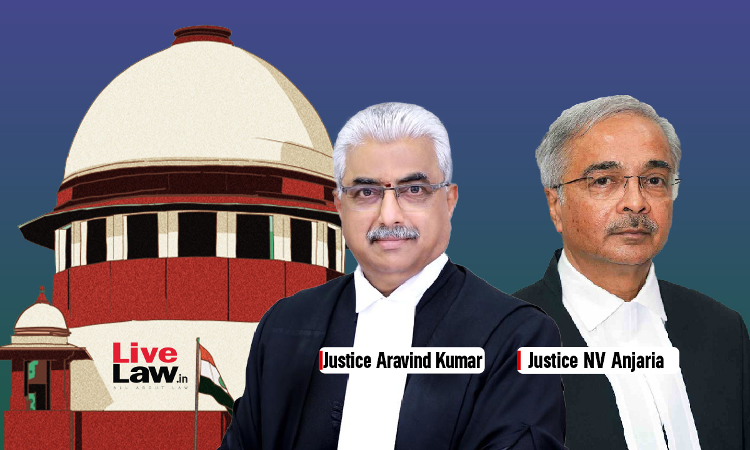'Genuine Cultivators Should Not Be Made To Suffer' : Supreme Court Declares Plantation Vested With Kerala Govt As Not Private Forest
LIVELAW NEWS NETWORK
21 Oct 2025 9:21 AM IST

“Genuine cultivators should not be made to fight a prolonged battle to vindicate rights that are apparent from the public records,” the Supreme Court observed while declaring that 37.5 acres of land in South Wayanad, cultivated with coffee and cardamom, is private plantation land and not a vested forest under the Kerala Private Forests (Vesting and Assignment) Act, 1971.
A Bench of Justice Aravind Kumar and Justice NV. Anjaria set aside the 2012 judgment of the Kerala High Court, which had upheld the Forest Tribunal's rejection of the claim by M. Jameela, and restored ownership and possession of the land to her. The Court held that the entire extent of 37.5 acres was exempt from vesting under Sections 3(2) and 3(3) of the 1971 Act.
The Bench found that the land had been cleared and converted to coffee and cardamom plantations as early as 1957 by the original owner, Parappu Mappilakath Imbichi Ahmed, after obtaining permission from the District Collector under the Madras Preservation of Private Forests Act, 1949. The plantations, the Court noted, were duly registered with statutory boards before the appointed day. The Coffee Board Registration Certificate No. 284/1972 and Cardamom Registration Certificate No. 81/SW dated June 30, 1971 established their existence prior to May 10, 1971, the appointed day as perr the Kerala Private Forests (Vesting and Assignment) Act .
Rejecting the State's argument that parts of the land remained uncultivated or were planted later, the Court observed that the overall character of the land as plantation was undeniable. “The presence of young plants in a plantation in 2007 does not automatically prove that area was barren in 1971. Plantations are dynamic; old plants die or are felled, and new ones are put in their place,” the Bench remarked.
The Court also accepted the findings of the Advocate Commissioner and a Coffee Board expert, who had estimated the age of several coffee plants at 40–42 years as of 2007, indicating they were planted in the mid-1960s. It noted that the State had not produced any counter-expert evidence or scientific rebuttal.
Referring to tax and revenue records, the Court observed that the land had consistently been treated as a plantation by government authorities. It also recorded that the Forest Department had originally excluded the land from vested forest demarcation and only after several decades attempted to claim about 8.25 acres as Government land, without any convincing reason.
Finding that both the Forest Tribunal and the High Court had taken a “technical and overly skeptical” approach, the Supreme Court held that their concurrent findings were “manifestly unsustainable.” It ruled that the land satisfied the statutory conditions for exemption,being held under a valid title deed executed before the appointed day and under bona fide cultivation, and therefore did not vest with the State.
Allowing the appeals, the Court declared appellant M. Jameela as the lawful owner in possession of the property and directed the State of Kerala and the Custodian of Vested Forests to correct boundary records within six weeks.
“The entirety of the said lands stands exempted from vesting by virtue of Sections 3(2) and 3(3) of the Act, being lands under bona fide coffee and cardamom plantations existing prior to the appointed day,” the Bench concluded.
Senior Advocate V Chitambaresh appeared for the appellant.
Senior Advocate Jayanth Muth Raj appeared for the State
Case : M. Jameela v State of Kerala and others
Citation : 2025 LiveLaw (SC) 1023


